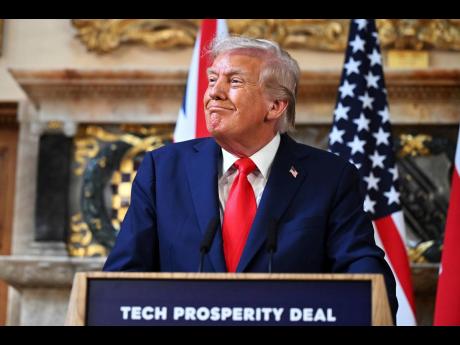Editorial | Watch the drug list
Jamaica’s appearance on America’s list of countries that are either major producers or transshipment points for illicit drugs will be discomforting for Kingston, but isn’t, on its face, a source of crisis for the Holness administration.
As it now stands, the development is a public reminder by Washington that Jamaica has a problem which continues to need attention. Importantly, though, the Americans have acknowledged that Jamaica has been cooperating on the issue.
However, given the capriciousness of Donald Trump, the US president, Jamaica ought not be lulled into complacency. At the slightest provocation, Mr Trump could do against Jamaica what he has been threatening against Venezuela.
In the circumstances, Kingston must redouble its fight against drug traffickers, including expanding its partnership with its Caribbean neighbours as part of the effort. At the same time, the administration should use the opportunity of the report to press the Americans to be more rigorous in attempting to stem the flow of illegal guns to this island and elsewhere in the Caribbean.
Under America’s Foreign Relations Authorization Act of 2003, the president is to annually designate, and report to Congress, countries that identify and designate countries as either major drug producers as transit points.
ISN’T SURPRISING
Such a designation can lead to US sanctions. Given its location between North and South America, as well as on the sea route to Europe, it isn’t surprising that Jamaica has previously been named on the list.
But being among the 23 countries named this time has attracted greater attention because of Donald Trump’s mercurial personality, and concerns that he could use the designation as leverage against countries with which he has disputes – manufactured or real.
For example, Mr Trump has, in recent weeks, dispatched warships and fighter jets to the southern Caribbean Sea, near Venezuela, ostensibly to interdict drug smugglers in go-fast boats heading towards the US. However, many people believe his real intent is to set the stage for US intervention in Venezuela, whose president, Nicolás Maduro, the Americans say, is illegitimate and runs a narco-state.
Already, the Americans have blown up two vessels which they claim had left Venezuela with drugs. They acted without making any attempt to indict the boats or to arrest their crews, who Washington branded as terrorists.
Happily, Jamaica doesn’t face the hostility the United States has directed to Venezuela. Neither is Prime Minister Dr Andrew Holness, who won re-election this month, likely to share the belief of Colombia’s leftist president, Gustavo Petro, that his government is being targeted to affect domestic politics. Colombia, a long-standing US ally in the so-called War on Drugs, is ‘decertified’ as a partner that was doing enough against trafficking.
SEVERAL FACTORS
Indeed, while political calculus is widely believed to affect designations, the report said that a country’s appearance on the list was “not necessarily a reflection of its government’s counterdrug efforts or level of cooperation with the United States”. That, it explained, could be influenced by several factors that “allow drugs or precursor chemicals to be transited or produced, even if a government has engaged in robust and diligent narcotics control and law enforcement measures”.
Indeed, in a separate International Narcotics Control Strategy Report (INCSR), the US State Department highlighted several “operational challenges” that constrain Jamaica’s drug-fighting initiatives, including the inflow of illegals, even though police had made big narcotics hauls over the past year.
“Despite these obstacles, the Jamaican government continues to prioritise bilateral collaboration to address the critical security risks posed by both firearms and drug trafficking,” the INCSR said.
However, the Americans noted the problem of corruption which helps to facilitate drug trafficking, but stressed that the Holness administration didn’t condone such behaviour as a matter of policy. In other words, the Jamaican state wasn’t in the capture of narco-traffickers.
Said the report: “The government of Jamaica does not, as a matter of policy, encourage or facilitate illicit drug production or distribution, nor is it involved in laundering the proceeds.
“However, corruption remains a significant barrier to effective drug enforcement. Internal conspiracies involving customs officials and law enforcement personnel allow traffickers to exploit vulnerabilities. In 2024, several high-profile corruption cases highlighted the complicity of public officials in drug trafficking operations.”
The government has a job to do to clear the facts, and perceptions, noted in these reports.

